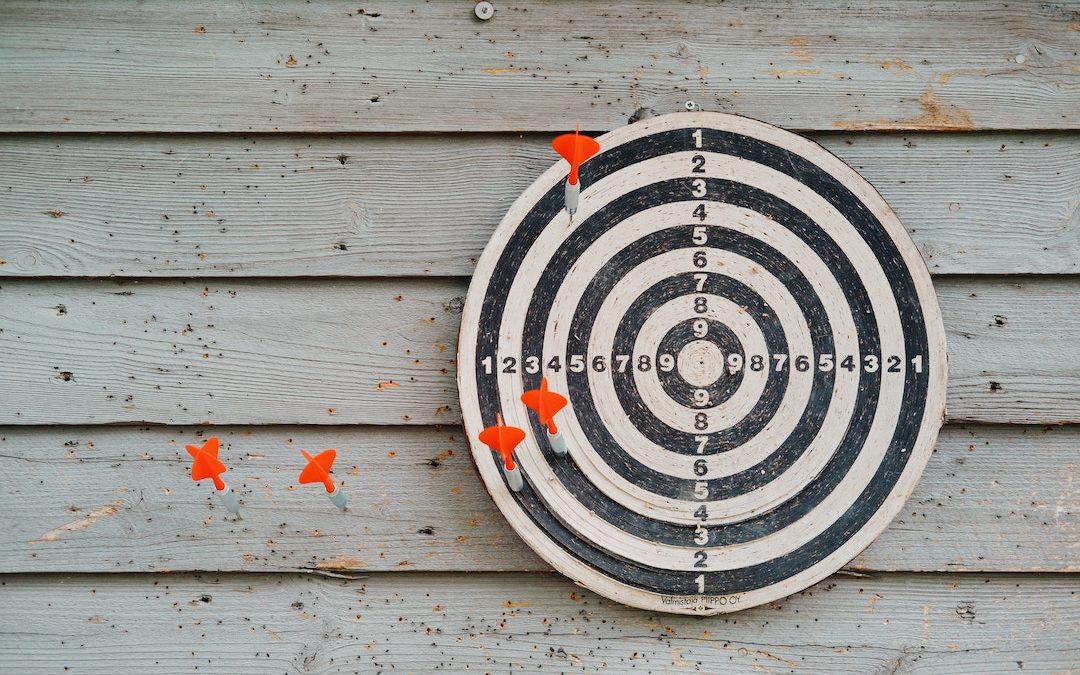
by Rachel Toalson | This Writer Life
One of the most surprising and beautiful things I have learned about the kid-lit community is it is filled with kind and generous writers. There is an unspoken belief among my fellow writers: We need each other.
Sometimes, when we’re immersed in the writing world, it can seem like there are only so many spaces for people—and in some ways that’s true. Only a certain number of books get picked up by traditional publishers. Not every book can win an award. Only a few make a bestseller list.
It can be extremely hard to remember this is not a competition. We all have our own race to run.
I like to think that when you give generously—when you help out another writer or you introduce them to your network or you gush about their book—it comes back to you. Pay it forward, and maybe it will come back. Maybe it won’t, too. But that doesn’t matter, because in the act of paying it forward, you realize something important: Generosity is good for you.
If I have influence, I want to help other people. There are so many good stories out there, and so many that still need to be told.
Before my first book, a novel in verse, published, I attended a conference where I knew pretty much nobody. But I saw that an author I admired—Laura Shovan, who wrote one of my favorite novels in verse (The Last Fifth Grade of Emerson Elementary)—was also there, so I went out on a limb and contacted her.
She generously took me under her wing, introduced me to some outstanding poets, and brought me into the fold. She showed me that I belonged there in the writing community, and I have never ever ever forgotten it. I’m in her poetry community now, and every February a large group of us create and share with each other themed poetry for the month.
The friends I meet—I’m cheering them on. I genuinely want to see them succeed. A rising tide lifts all boats.
I want to have a generous spirit, as a writer. I have definitely met some who didn’t and don’t. Nobody’s happy in a writing culture of competition. But in a writing community of generosity? We all win.
Here are some of my favorite ways to pay it forward as a writer.
1. Share resources and things you’ve learned.
This is probably one of the easiest ways to pay it forward. We don’t start out being awesome writers. So how did we get here? Sharing craft books and teaching resources that moved us along our journey can be incredibly helpful to those a little farther behind us on the journey.
When writers have questions, answer them. (Now, I’m not proposing you answer every single question that comes your way individually. When would we have time to write if we did? My friends and I have a standard email we send out to people who contact us for questions, pointing them to answers and resources that can help.)
As you progress, bring someone else along with you. As you learn, share.
2. Share your network.
One of the most valuable things we can do in the writing world is build our network. But when we’re new, we don’t know many people. And we’re probably also suffering from a gigantic case of imposter syndrome. (Actually, that plagues us every step of the way—but it is worse in the beginning.)
Introduce new writers to people you know. People they can learn from. The writing community can be an incredibly supportive place. We understand and recognize each other.
At any point in our writing journey, there will always be someone farther ahead and someone farther behind. Help the laggers, and you’ll probably find yourself helped, too.
3. Read other writers’ work and share about it.
Word of mouth is one of the most effective ways books get into readers’ hands. So talk about your favorite books and authors.
And also—tell authors what you loved about their book. We hear a lot of reasons people don’t like our books; it does us good to hear the positives. Be generous with your praise.
It’s important to remember in the writing world that there’s room for us all. Readers will keep reading books. And there are plenty of readers to go around.
We’re stronger together.
Have a marvelous month of paying it forward.

by Rachel Toalson | This Writer Life
Most writers are naturally curious people. We ask a lot of questions about the world. We wonder and challenge and try to make sense of the senseless.
And we love to know how other writers do things—how they write a book, how they manage their time, how they market themselves, how they live, how they breathe.
When I was first starting out as a writer, I was vulnerable to the temptation to do something—everything, maybe—the way someone else did it. I had to write for five hours a day, spend 20 percent of my time marketing, use this story structure, start my stories with a logline before I ever wrote a word, explore these concepts, never start with a theme, blah blah blah blah blah.
I tried. I really did. And I found myself getting burned out, frustrated, and completely overwhelmed.
There are lots of voices out there saying, This is the way to do it, and it’s the only way to do it if you want to be successful. I wasn’t experienced enough to see this for what it was: one person’s advice.
I disagree vehemently with the kind of advice that says, This is the only way to do it. Part of it is my contradictory nature; I don’t like someone telling me I have to do things this one way and that’s the only way, don’t even try to do something different. The other part is something it took me a while to realize: We are all different. We all work differently. We live differently and breathe differently and manage our time differently.
We also write differently.
I’m all for researching the different time management, writing, revision, marketing methods people use. And I’m happy to share my own.
But because every writer is different, we have our own way in which we work best. And we have to find our way.
My way into a story or a piece of writing includes spending a few weeks getting to know my characters or thinking about what I want to say before I even begin on the piece. I research and brainstorm for a few weeks. Then I write a first draft from start to finish, without editing or revision. My revising takes the longest and requires anything from three to eight or so more drafts, give or take a few depending on the story.
That process won’t work for everyone. Because there’s more than one way to write.
Some like the white noise of coffeeshops, some prefer listening to music, some can’t write unless there’s absolute silence. And guess what? For me it’s different for every story. So there’s that variable, too: Stories require different methods sometimes.
We all want some easy formula, some definitive way to write a story (or do things or live life). And those of us who have done it before are seen as experts. Because we’ve done it. But all we can really offer are suggestions.
We all have to find our own way. What works best for us, not everyone else.
Here’s how:
1. Be open to experimentation.
Take a scientific approach. Design your experiments intentionally to draw out a variety of writing methods. Go ahead and collect other people’s suggestions. Gather as much information as you can.
And then design some experiments to intentionally try out a variety of writing methods. And pivot continuously. Every experiment (failed or otherwise) gets you closer to your process and your way.
2. Take notes on what works and what doesn’t.
Every successful experiment requires notes. Ask yourself, What do I like about this way? What do I hate about it? What slows me down? What feels natural to my writing process?
Self-awareness and critical thinking are important factors in improvement—for writing, but also for anything in our lives.
Make a list. Start a spreadsheet. Identify what’s necessary and what’s not. I’ve learned over the years that I don’t need to fill out a long, complex character sheet on my characters, because I get to know them during my lengthy brainstorms. There may be additional things you need, and that’s okay. We all write differently. (Have I said it enough?)
3. Be patient with yourself.
It’s not unusual for me to read or hear about another author’s writing process and think, I really need to try that. Still! After writing more than 50 books!
We’ll fall under the spell of “Here’s how to do it.” But also keep in mind that we never stop growing and evolving and adjusting. Even when you think you have a process in place, you may discover a new method that really works. Stay open to that, too.
It’s all a grand experiment. Keep experimenting.
Take as long as you want and need to find your own process. And repeat to yourself: There is no right or wrong way to write.
Have a fantastic month of experimentation.

by Rachel Toalson | This Writer Life
It’s not unusual in my house to hear someone slam through the front door, along with the words, “I’m not playing with them anymore.”
This could be for any number of reasons—someone’s cheating (according to the one upset), someone made them mad, or, the most frequent offense, someone doesn’t like losing. (That would typically be the one who walked his declaration inside.)
My sons love playing street hockey in our cul-de-sac. At least until they lose.
I can’t really blame them. Everybody wants to win. Who likes losing?
This gets the best of me sometimes. Right around this time of year, actually. There are awards lists. And best-of lists. And lists to predict the awards and best-of lists. Not making it on one of these lists is kind of a confidence- and soul-crushing thing. For me.
Writers are sensitive people, you know.
I usually have to take a social media break because of the lists. Winning and losing has always mattered to me. Being the best—that especially mattered.
When I ran track, competitions came standard—and how you performed was important. There were clear winners and losers, and I wanted to be a winner. The same was true when I played the clarinet and auditioned for the all-state band. I made second-chair state my junior year of high school, and that felt like a win. But when I made second-chair state my senior year, it felt like a loss, because I wanted to be first chair.
Your goals change the higher you rise.
It’s long been a dream of mine to win a major award for one of the books I write. That feels like winning to me—winning an award and achieving a dream at the same time. But is it losing if I never win a major award? Sometimes it feels like it.
It can be really tempting to feel competitive with other writers, especially when award season comes around. Especially when we think about winning and losing this way.
Carlos Gershenson, a computer scientist and researcher, says, “Winning or losing doesn’t matter so much as what you learn from it.” I like that. It reminds me that we get to make our own definition of winning and losing.
We learn from winning, and we also learn from losing. Actually, we might learn more from losing. Losing—facing disappointments and setbacks—often makes us want to work harder toward our goals. That’s an important part of the journey, too.
What if, instead of focusing on the black-and-white reality of winning and losing, we lean more toward the gray: what we learn? From the journey. From the training. From the day in, day out act of writing. Being. Becoming ourselves.
And maybe we win, in the process—because the measure changes. Winning is learning something. Losing is learning nothing.
Here are some things we can learn from the journey:
1. We are stronger than we know.
Sometimes the disappointment of what we consider losing can completely overwhelm us. Maybe we’re knocked out of the game for a while. That’s okay. Somewhere along the way we’ll pick ourselves back up and start the work again—stronger and fiercer and steadier than before. We learn we’re made of stronger stuff than the flimsy paper that disintegrates in the rain. We learn that no one has control over whether or not we write every day except ourselves. And we learn that falls only hurt for so long before all the bruises go away.
2. We will persist.
We face a lot of rejection and disappointment in the writing industry. But that’s not losing, it’s winning—we’re putting ourselves out there, inviting people into our stories. It’s a vulnerable place to be.
The stories and poems and novels I’ve written have been rejected many times in the years I’ve been submitting them. Rejection always hurts. It never gets easier (at least not for me). But I’ve learned, in the years spent navigating this rejection, that it’s only the end of my writing career if I let it be. Sure, it stings, and sure, it can feel like a kind of death, but rejection doesn’t matter nearly as much as persistence. In the writing world, those who persist in spite of seemingly endless setbacks and disappointments ultimately win.
3. “Losing” is not the end of the world—or the end of us.
We know, intuitively, that “this” (whatever “this” is) is not the end of the world. It can certainly feel like it in the beginning, when the pain of “losing” is fresh. Our hope flatlines sometimes—for a while, maybe. But “losing” is only a hurdle, an opportunity to strengthen our resolve, our skills, and our belief in ourselves. How badly do we want our goals? We can’t let any rejection or disappointment or “losing” get in the way of them.
Have a spectacular month of persisting.

by Rachel Toalson | This Writer Life
Some creative people think that creativity only happens when the “muse” strikes.
That always sounded strange to me. Who was the muse? Am I not my own muse? In charge of my own creativity? If I had to depend on some nameless, invisible muse, who may or may not show up when I had some extra time to write, how would I ever get anything done?
It all sounded very unpredictable. And I don’t like unpredictable (in case you haven’t already figured that out).
So I probably don’t even need to tell you that I don’t subscribe to this belief.
What I do, instead, is train like a writing athlete.
I can hear the groans already. Training? Athlete? We became writers so we didn’t have to expend that much energy.
While it is some work to train like a writing athlete, I promise it’s not as much physical as it is mental.
And if you’re the kind of creative person who prefers waiting for inspiration to strike, then the following tips can help lay out the red carpet for the muse.
1. Be consistent.
I know it’s not always easy being consistent. I have six kids. This summer was a flurry of pediatrician well checks and eye doctor appointments and dentist appointments—and that’s just the scheduled extras. There are so many variables with six kids. Someone forgot to tell me about drama practice, someone missed the morning bus, someone got sick, someone decided he didn’t like carrots anymore.
But still, if all else fails, I try to squeeze in at least fifteen minutes to half an hour of writing time every day. I’d prefer more, sure, but the consistency is what’s important.
Consistency leads to necessary gains. Just like my consistent training makes me a better, stronger runner, so consistent training (or practice) makes us better, stronger writers.
Build your process. Experiment with what works for you. We’re all different. Don’t worry about how fast or slow you write. Focus on the best training schedule for you.
2. Don’t be afraid to add variety.
When we’re not training in our one specific fitness area (such as running), we think it hinders progress. I believed this for a long time—until I injured myself and had to take some time off, which is actually what hindered my progress. I spent that time off strength training, adding pilates and yoga to my regular workout rotation, and rowing. I came back a much stronger runner than I was before.
Writing, too, needs variety. Writing different forms in different genres, for different age groups—even if it’s just for fun and never goes beyond a very short story on our hard drive—challenges and stretches us as writers. Adding variety into our regular writing routine can strengthen our main discipline. If we write novels and change it up by writing short stories, we’ll likely write better novels. If we write essays and change it up to write some poetry, we’ll come back to the discipline we love much stronger.
In the same way, adding a variety of creative disciplines into our regular routine can make us better at our main creative discipline. Do other creative things that don’t seem to have anything to do with writing. Compose some songs, draw some pictures, pick up an instrument, dance like no one’s watching. Creativity enhances creativity.
3. Rest and recovery are just as important as the discipline of work.
You know where fitness gains really happen? In the rest after putting in the work. Muscles repair themselves and get stronger. Lungs expand and improve their capacity.
I like to think the same is true in writing. The brain keeps working even when we take time off. The subconscious mind works while we’re unaware of it.
So take a day or two or a whole week off. Spend the time doing other creative things or nothing at all. Let your brain rest. It will likely keep working for you—but will appreciate the rest all the same.
I hope you have a joyous month of consistency, variety, and rest.

by Rachel Toalson | This Writer Life
The first year I ran track in middle school, I remember my coach telling us, “Running is about 90 percent mental.” I remember thinking, That’s ridiculous. I’m not running with my mind, I’m running with my body. And my body is too tired for this.
And as soon as I thought that, my body was too tired for it.
Which proved her point (but it would take me many more years to concede that).
The same is true for writing. I’m not sure about the 90 percent when it pertains to running, but it’s definitely true for writing, which is all done with the brain and needs positive, clear, excited brains to actually get started on any kind of project.
Just like when I head out the door for a run thinking, This is hard and awful and the run turns out to be hard and awful, if I start my writing session thinking, This is not gonna be good, it probably won’t be good. Our thoughts and attitudes make a huge difference in this career.
The mental game of writing is not an easy one to master. Thoughts break in during the middle of a writing session: Oh, this is so bad. No one’s gonna want to read it. I don’t want to read it, even. I should just trash the whole thing. This was a terrible idea anyway.
It didn’t take me nearly enough time to write that paragraph, because I’m intimately familiar with these intrusive thoughts. They plague me.
Peace Pilgrim, an American teacher, once said, “If you realized how powerful your thoughts are, you’d never think a negative thought.” But it’s not quite as simple as never thinking a negative thought again, is it? Because our minds sometimes have minds of their own.
So how can we better play the mental game of writing?
Here are some suggestions.
1. Do the work.
The more you practice, the better you get and the more you can talk back to those voices.
Most skills and talents don’t improve beyond any small measure we may have been born with if we’re not willing to practice. Practice develops expertise and competence. And as we develop expertise and competence, we also practice taking on the mental game of writing, facing all those voices that seek to stop us, pushing through their resistance, and building our perseverance. All of that practice is worthwhile.
But we also have to practice strategically. If we practice mistakes, we’ll get better at mistakes. When I played clarinet in high school and college, I had a rigorous practice routine. I’d spend between 90 minutes and two hours practicing to a metronome. I’d first warm up on every scale, including the chromatic, from memory. Then I’d start with the problem areas, slowing things down until I played the problem area perfectly, then speeding it up and moving on only when I felt comfortable with my competence playing the passage.
I take this same meticulous approach to my writing. I identify my weaknesses, study, play around with no-pressure compositions that challenge my weaknesses and work on strengthening them. It’s a grueling process, but it’s a good boost to the confidence when a part of writing that used to feel so hard doesn’t feel all that hard anymore.
2. Practice turning a negative phrase into a positive one.
Let’s say you sit down to write and your brain immediately says, You can’t do this. Talk back. Say, I can do this. And I will. If your brain says, What’s the point? No one will read it. No one cares. Say, Someone will read it. Someone will care. And the point is also that I love this and someone needs my story. If your brain tells you, This is crap, tell it, It may be crap now, but revision is where crap turns into brilliant.
If it’s too hard to do this mentally, take out a sheet of paper. If your brain throws you a negative thought while you’re writing on your project, use your sheet of paper to record the negative thought (even if it breaks your flow for a second or two). Underneath it, write the opposite of what the voice is saying (preferably in larger, bolder letters. Put that voice in its place.). Do this for every negative thought your brain supplies. And then put your paper on a bulletin board or wall where you can see it every time you write.
Negative thoughts get quieter when you take away their power.
3. Remember every writer faces resistance.
You’re not the first and you won’t be the last. No award, no bestseller status, no three-book deal will eliminate the mental game you’ll have to conquer (nearly) every time you sit down to write. We never feel 100 percent competent. We all deal with imposter syndrome, however many books we’ve written or how long we’ve been doing this. That’s either a source of comfort or a source of despair. I hope it’s the former.
Our thoughts can be powerful. But we don’t have to let the negative ones have the final say.
Have a wondrous month of talking back.

by Rachel Toalson | This Writer Life
There’s a myth out there that says the longer you write the better you get at it.
Okay, that’s not a myth. Practice makes progress, after all. But where the myth shows its face is in the belief that as you get better at writing, it also gets easier.
Uh…I’m sorry if I have to burst some hope-filled bubbles here (and I’ll try to give you new hope-filled bubbles by the end of this), but writing does not get easier with practice.
I mean, in some instances it does. I now have sort-of a process for getting a first draft written and revising it endlessly and perfecting it even longer—it’s not all just loose ends flapping in the wind. So I suppose that’s gotten easier. But what hasn’t gotten any easier is getting started. Or dragging myself through the middle—although I have gotten better at them…it’s just that by the time you get to the middle of a project your excitement for the newness of it has worn off and you’re not yet excited for the end because you still have so…far…to go.
What I’m trying to say is the mechanics of writing get a little easier the longer we’ve been writing. But the thing that gets in all our ways—the headspace of writing—doesn’t necessarily get much easier.
Unless…
You know I wouldn’t leave you with something as hopeless as it never gets any easier, didn’t you?
The truth is, our heads get used to the constant persistence after a while. We feel that initial little oh, wow, this is a big commitment, I don’t have the time, and we know we’ve done it before. We’ve found the time. We hear those voices that say, Well, this idea is crap and no one will ever want to read it, but we also know we’ve taken a crap idea to a brilliant idea before, so it stands to reason we can do it again.
We’re faced with a blank page and that little surge of panic that accompanies the thought, I don’t know what to write, and we remember what Frank Choi, a Korean American poet, said: “Just start a sentence and hope brilliance will strike.”
And we get started, like we did last time.
We just start a brainstorm and hope brilliance will strike. We just start a sentence and hope brilliance will strike. We just start a revision and hope brilliance will strike.
And brilliance usually does, eventually, if we’ve put in the work and the time.
Here are some ways we can help brilliance along:
1. Write the first draft by hand.
I know it’s a radical ask. We live in the golden age of technology! Why would we write an entire book by hand?! It takes so much longer!
Sometimes that’s the point. When we fly through scenes, we sometimes don’t get everything out of them that we may have gotten if we’d slowed down a little. Maybe there’s a significant look one character gave another that meant something ominous. Maybe there’s a vital line of dialogue we missed in our hurry to get all the words typed into the document. Maybe we’re missing an entire point in our essay because we haven’t slowed down enough to let it marinate.
And besides that, scientific research indicates that we use a different part of our creative brain when we write by hand. So if you write the first draft by hand and subsequent drafts by computer, you’re using your whole brain. How cool is that?
So grab a notebook and start writing. And if you don’t want to write an entire book by hand, try just the first chapter.
2. Put your composition away for a while.
When you’ve finished a draft of whatever you’re writing, I always recommend putting the story aside for a while before picking it back up. Time and distance allow our brains to approach stories with fresh ideas, and we can more clearly see problem areas and places that need fixing.
How long should you put it away? Well, that depends on your preference. My first drafts often get put away for three or four months before I dust them back off. And hopefully in that time I’ve not only grown as a writer but also as a person, and I can make vast improvements to the story.
Later drafts (drafts 2-6 or so) get put away for between two weeks and a month. Fresh eyes are valuable.
3. Remember you’ve been here before.
The longer you practice writing and the more stories and compositions you complete from start to finish, the more likely you can remind yourself, at any step of the process, that you’ve been here before and you’ve written your way out. The exciting beginning, the not-so-thrilling middle (I know I’ve been dumping on the middles, but truthfully the more middles I write the fonder I get of them), the I’m-not-sure-how-to-end-this…you’ve been in all these places before. Which means you can confidently and expertly (maybe) see yourself through them again.
Writing comes with all kinds of resistance. But the more practice we get putting words on a page and pushing through the resistance that’s bound to come, the better at it we get. And…dare I say it? The easier it all gets.
Not easy. Just easier. Marginally.
But we don’t do it because it’s easy, do we? We do it because we love it.
Have a fantastic month of starting and finishing sentences—hopefully brilliantly.







